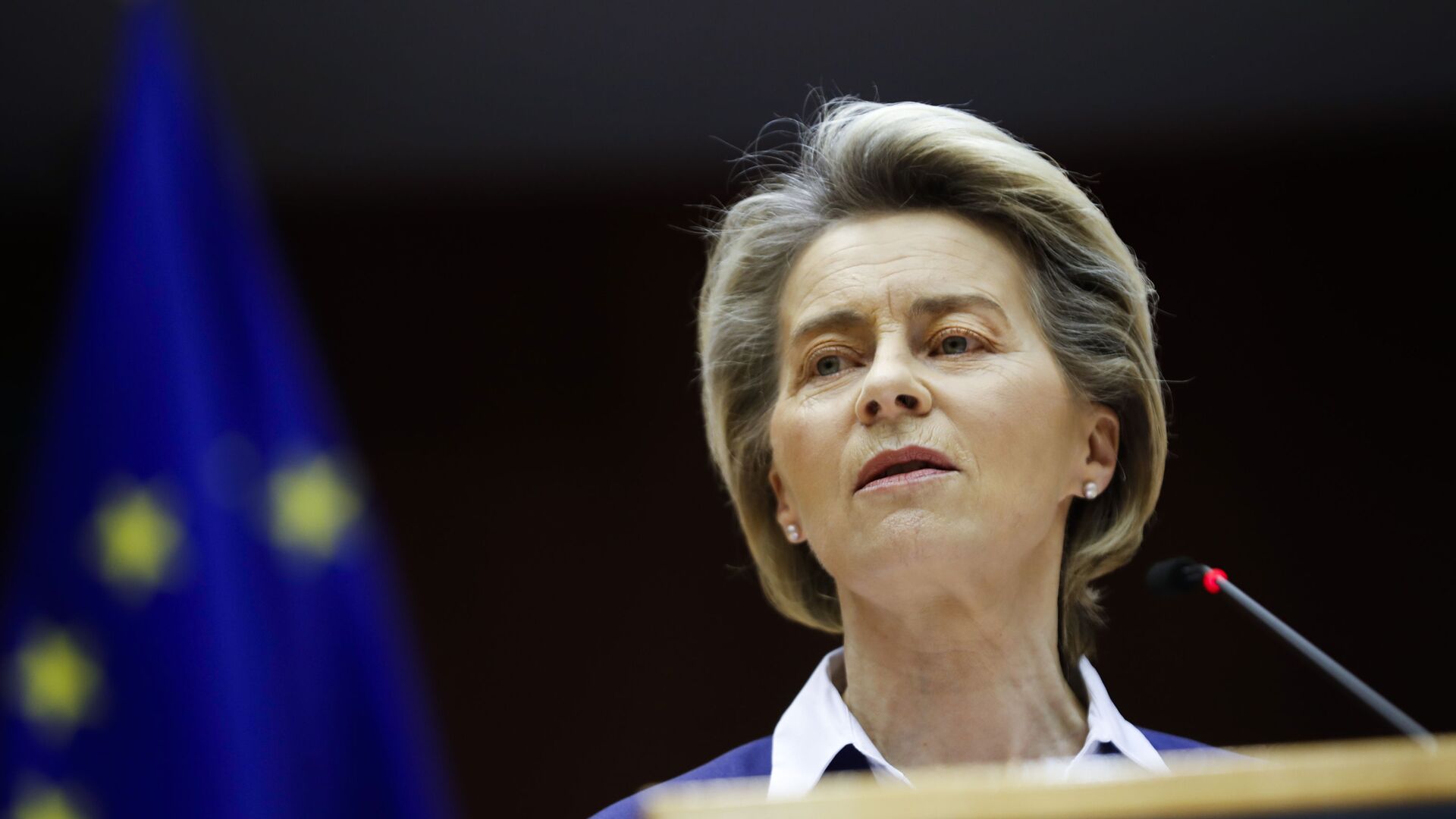European Commission President Ursula von der Leyen said the bloc will halt exports of coronavirus vaccines to the United Kingdom unless London starts shipping inoculations to the bloc. "We want to see reciprocity and proportionality in exports and we are ready to use whatever tool we need to deliver on that. This is about making sure that Europe gets its fair share", she said.
Von der Leyen said the bloc had sent 10 million vaccine doses to Britain in recent weeks and emphasised that the UK has become the number one country in terms of the EU’s exports of inoculations. However, the bloc is still waiting for "doses to come from the UK".
"This is an invitation to reciprocity", the European Commission president said.
She then reminded Britain that Moderna and BioNTech/Pfizer were honouring their contract obligations, while British-Swedish company AstraZeneca was on course to deliver just 30 million of its promised 90 million doses in the first quarter of 2021.
'Vaccine Nationalism' vs 'Export Ban'
The ongoing row between London and Brussels started due to the slow pace of the bloc's immunisation campaign, which has been affected by delays in production and shipments. The United Kingdom, meanwhile, is leading the rest of Europe in terms of total vaccinations. According to the UK government's website, almost 25 million people have received the first dose of the inoculation and 1.6 million have received two jabs.
Tensions escalated when AstraZeneca, which has production plants both in Britain and the EU, announced that it would postpone shipments of inoculations. Both the EU and UK had bought the inoculation, but the delays only affected the bloc.
To deal with the issue, the bloc introduced a law on 29 January that makes companies seek the EU’s approval before making shipments of vaccines to non-member states. Using this legislation, Brussels has blocked the delivery of 25,000 inoculations produced by AstraZeneca from Italy to Australia. This prompted accusations of "vaccine nationalism" against the European Union.
EU officials allege the United Kingdom has imposed an export ban on vaccines, a claim that London has categorically denied. However, according to Politico, when signing the contracts on the shipments of vaccines with AstraZeneca, the UK government ensured that the production plants in Britain would first supply its own citizens.
Darren McCaffrey, political editor at Euronews, said the slow pace of the EU’s immunisation programme should not be blamed on delays in vaccine shipments, but simply on the poor rollout. McCaffrey notes that some member states are sitting on millions of unused vaccine doses.
SHOULD BE NOTED: Higher vaccine rollout in other countries compared to EU NOT simply down to lack of supply
— Darren McCaffrey (@DarrenEuronews) March 17, 2021
Also ridiculously slow rollout
Some EU countries sitting on millions of unused vaccines!!! Some have only used 50% they currently have
And this before #AZ suspension
EU member states overall have used just 48 million doses out of the 62.2 million delivered to them
— Darren McCaffrey (@DarrenEuronews) March 17, 2021
15 million #AstraZeneca vaccines have been delivered to EU member states yet less than half have been used!!!
Ursula von der Leyen noted that if the supply situation doesn’t change, it will revise its policy on exports of inoculations.
"We will have to reflect on how to make exports to vaccine-producing countries dependent on their level of openness. And on whether exports to countries who have higher vaccination rates than us are still proportionate", she said.


